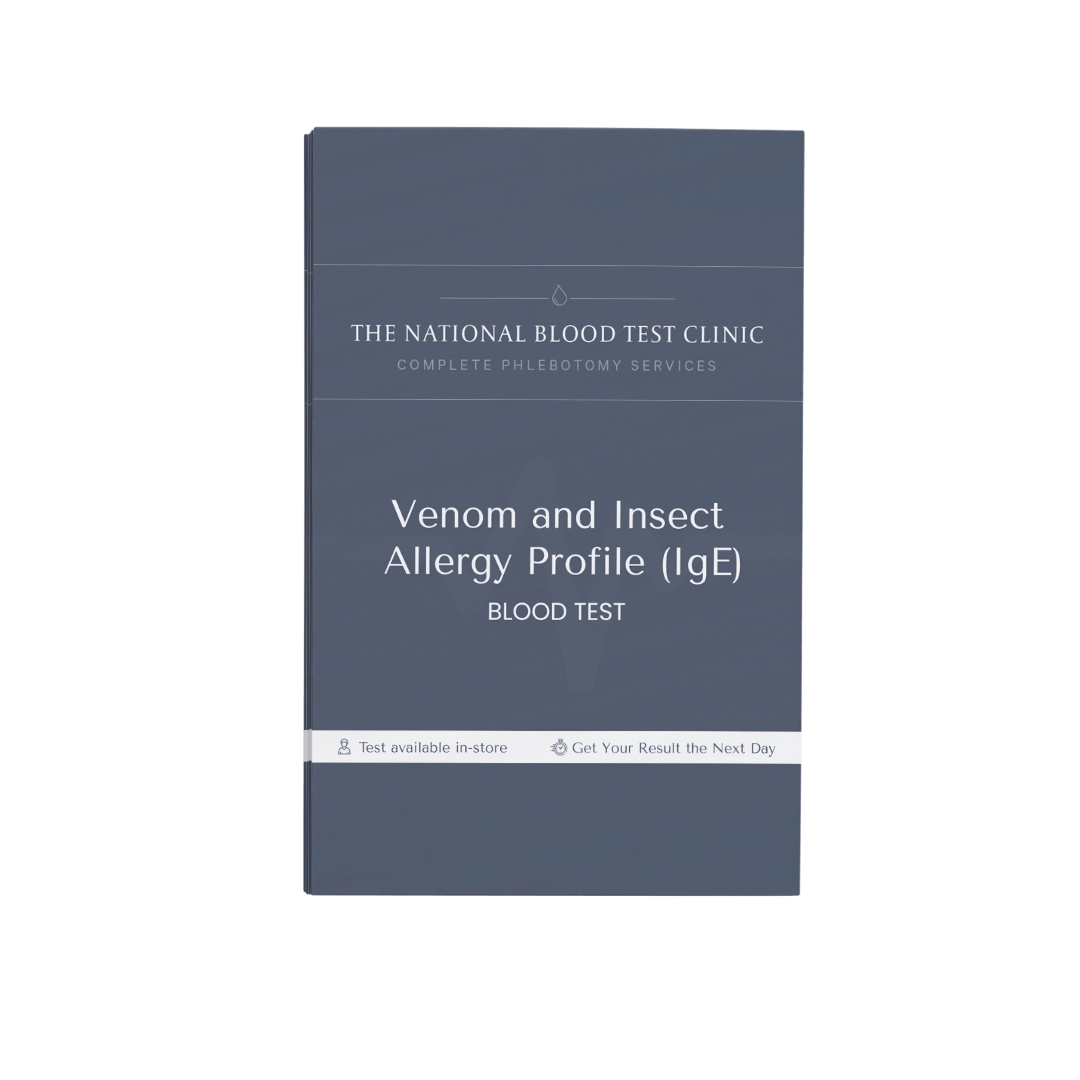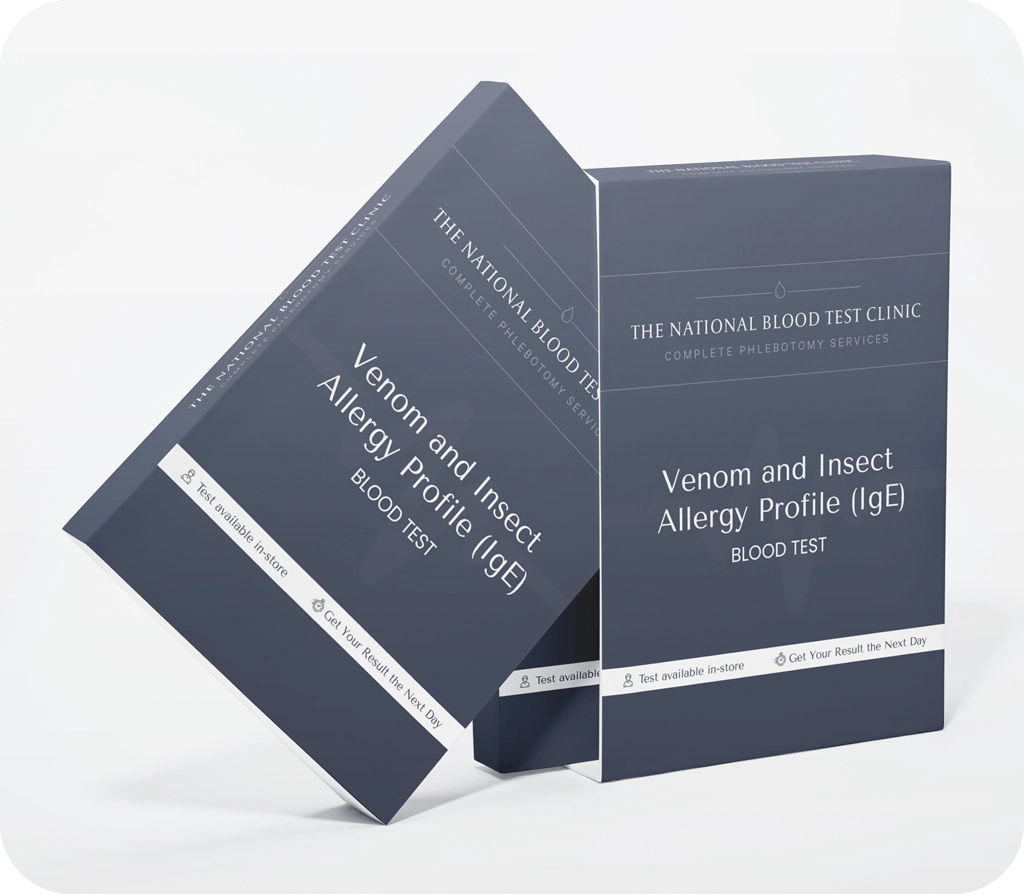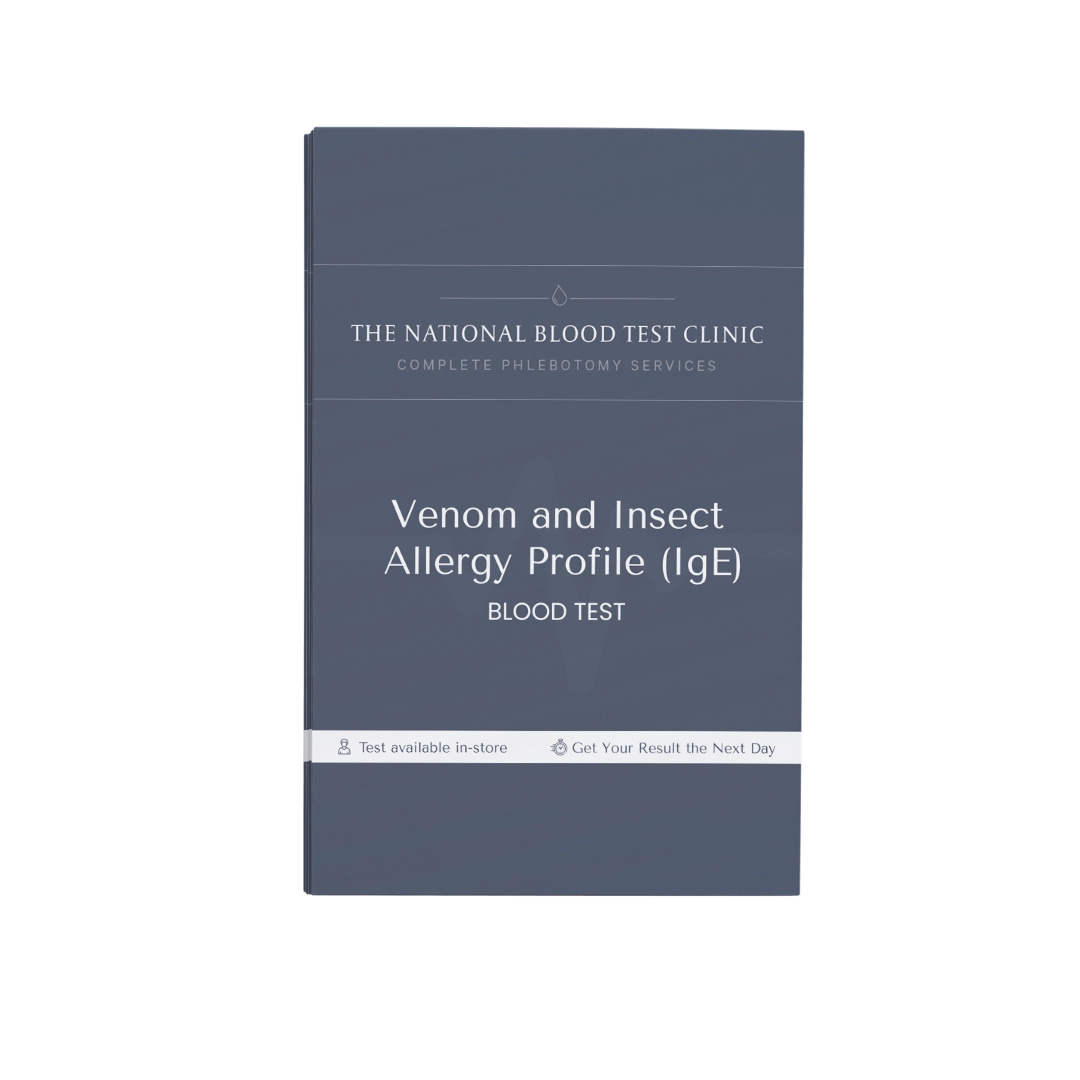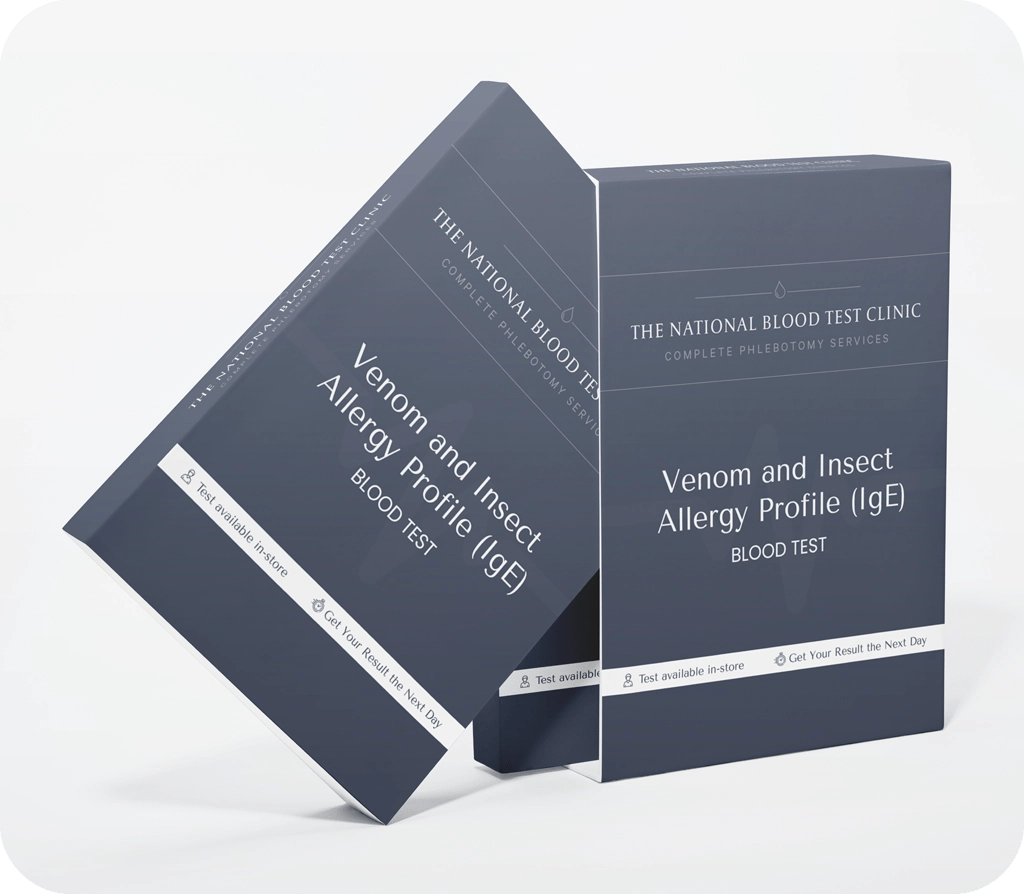My Store
Venom and Insect Allergy Profile (IgE)
Venom and Insect Allergy Profile (IgE)
SKU:ALL17
Reactions to insect stings or bites can range from mild skin irritation to severe, life-threatening anaphylaxis. This Venom and Insect Allergy Profile (IgE) identifies allergic sensitivities to common insect venoms and environmental triggers, helping to explain unexpected swelling, rashes, breathing difficulties, or systemic reactions. It provides essential insight for those at risk of serious allergic responses after stings or bites.
Why Venom and Insect Allergy Profile (IgE) Matters?
Insect venom allergies can escalate quickly and pose significant health risks if left undiagnosed. Early identification of specific insect sensitivities allows individuals to take preventive measures, carry emergency medication, and reduce exposure risks. This test supports safer management and peace of mind for people with a history of severe sting or bite reactions.
What Gets Assessed?
- Bee venom
- Wasp venom (Vespula)
- Wasp venom (Polistes)
- Hornet venom (Vespa crabro)
- Mosquito (Aedes communis)
- Fire ant
- Cockroach
Turnaround Time
- 7 Days
100 in stock
Visit a partner clinic (+£50)
Once you've ordered your test, look out for an email from our phlebotomy partners containing information and a link to book your appointment. We'll send you everything the clinic will need to complete the sample and post it back to our labs.
Organise a nurse yourself
If none of the above options work for you, you can arrange your own medical professional to collect your sample. There is no additional charge for this. Once you've ordered your test, we'll send you everything you and your chosen medical professional will need to collect a sample and post it back to our labs.
Couldn't load pickup availability
Enter Your Details


Visit a partner clinic (+£50)
Once you've ordered your test, look out for an email from our phlebotomy partners containing information and a link to book your appointment. We'll send you everything the clinic will need to complete the sample and post it back to our labs.
Organise a Nurse Yourself
If none of the above options work for you, you can arrange your own medical professional to collect your sample. There is no additional charge for this. Once you've ordered your test, we'll send you everything you and your chosen medical professional will need to collect a sample and post it back to our labs.
How Our Test Works
-

Place Your Order
Place your order online and receive a test kit delivered to your home. You’ll need to bring this kit with you to your scheduled appointment at one of our partner blood collection clinics.
-

Attend Your Appointment
At your chosen clinic, a trained nurse or phlebotomist will collect your blood sample using the kit you bring. If a sample collection courier is not available at the site, you’ll be asked to take the sealed sample with you and post it using the prepaid packaging provided.
-

Receive Your Results
Once your results are ready, you’ll receive an email notification to log in and view them securely via your private portal. Please note: venous blood test results are not automatically reviewed by a doctor. We recommend booking a consultation with a qualified clinician to help you interpret and understand your results fully.
FAQs
Who should consider this test?
This test is suitable for individuals who experience severe reactions such as swelling, hives, breathing difficulties, or anaphylaxis after insect bites or stings.
Which allergens are included in this panel?
The panel detects IgE antibodies against common insect venoms and allergens including bee venom, wasp venom (vespula and polistes species), hornet venom (Vespa crabro), mosquito (Aedes communis), fire ant, and cockroach.
How is the test carried out?
A blood sample is collected and analysed in the laboratory to measure IgE antibody levels specific to these insect allergens.
What do the results indicate?
The results show whether your immune system is sensitised to one or more insect venoms, helping to confirm the cause of allergic reactions.
Can this test support allergy treatment?
Yes, results can guide allergists in recommending avoidance measures, emergency action plans, antihistamines, or venom immunotherapy where appropriate.
Subscribe to our emails
Be the first to know about new collections and exclusive offers.





